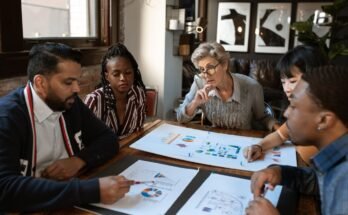Misperceptions are a human cognitive phenomenon that develops from knowledge gaps or inaccurate information. With so much information circulating in our digital world today, misunderstandings can quickly plant their roots and grow into misinformation well beyond the original conversation. But, a deeper dive into subjects can clear confusion, burst myths, and lead us to the correct conclusions.
The Roots of Misconceptions
Misunderstandings often come from the following sources:
- Limited Information — When people are not fully aware of a matter, they might assume things that can lead to inferences.
- Misinformation — The mistaken belief as related to false or misleading information (intentional or accidental) plays a significant role in misinformation.
- Cognitive Biases – People Have Cognitive Biases As A Rule, They Prefer Information That Aligns With Their Pre-Established Truths, Which Leads To Selective Perception.
- Complex Simplification – The simplification of complex ideas or processes can lead to a better understanding of the topic but will sometimes take away the critical information, or create oversimplifications that ruin reality.
Why deep understanding is so important
To prevent working under that false assumption however, one should practice asking deeper questions. This involves:
- Skepticism of Sources – Never lose sight of whether you are considering something fact or fiction based on who the information was produced by.
- Looking Further — To comprehend a topic thoroughly, we must consider various perspectives and spread the reports from journalists and experts.
- Employing Critical Thinking – Instead of swallowing the information whole, analyze the logic behind the claims.
- Learning is never done — what we know today will not be antithetical to what we learn tomorrow.
Misunderstandings in the Real World
- Lifestyle – Some diet myths are just popular because of partial knowledge, like they say all foods with fat are bad for health but the truth is our body needs healthy fats also.
- Science and technology — Scientific theories are often misinterpreted, for example, but evolution or climate change because one does not have to have a very comprehensive understanding.
- History and Culture–Simplifying historical events and cultural practices can create the stereotype and a false narrative.
The Role of the Media and Education
However, media, and education institutions play a critical role in either propagating or dismantling the myths. Responsible journalism, fact-checking programs and quality education all equip people with the tools they need to distinguish between fact and fiction.
Conclusion
Avoiding misconceptions, as it turns out, takes effort, curiosity and a little humility to wrestle with one’s own beliefs. When consuming information, it can ensure that a person can act wisely with knowledge based on facts and engage in healthy dialogue. But in a time when information is everywhere but accuracy is not, knowing is possibly more powerful than it has ever been.



